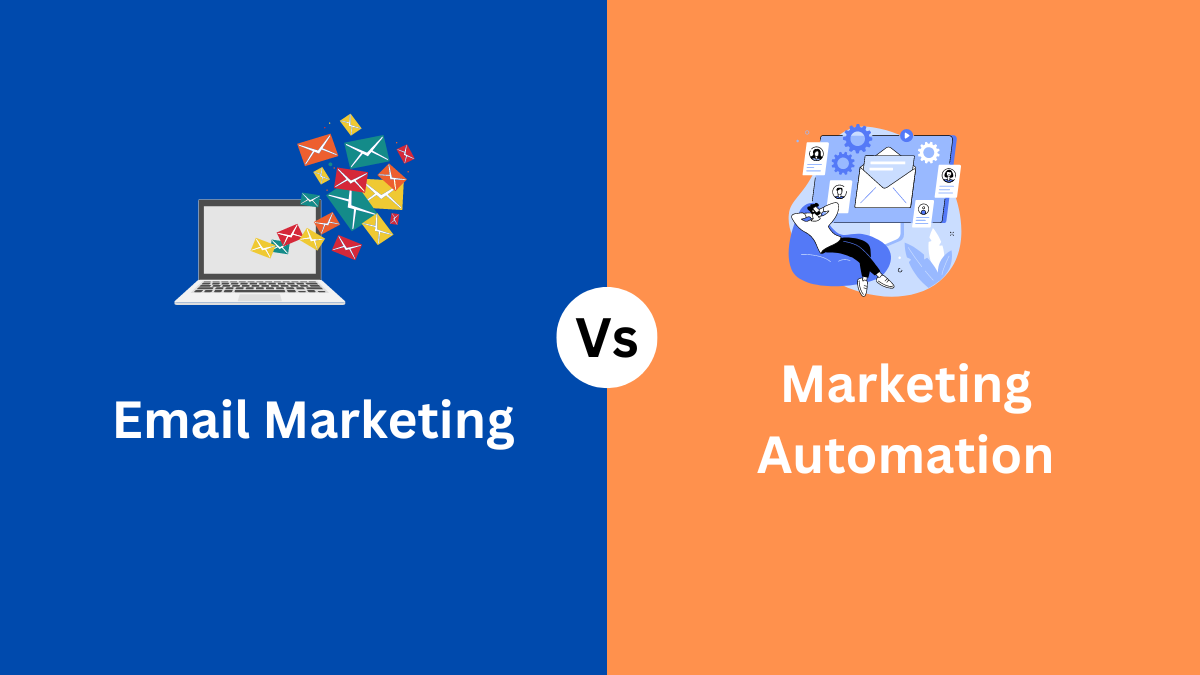
Email marketing and marketing automation are two popular marketing strategies that have long been used by businesses to reach out to potential and existing customers. While the two strategies might appear similar, they are vastly different in their approach and how they help organizations achieve their goals. In this blog post, we’ll take a closer look at the comparison of email marketing vs marketing automation, and help you understand which one might be the best fit for your organization’s needs.
What is Email Marketing?
Email marketing involves the use of emails to communicate with customers and promote products or services. This method aims to build a relationship with customers and keep them informed about any updates or sales. Email marketing is generally focused on sending regular, personalized newsletters. or promotional messages to a group of people who have already opted in to receive communication from your organization.
What is Marketing Automation?
Marketing automation, on the other hand, is a sophisticated process that uses advanced software tools to automate marketing tasks and manage the customer journey. The goal of marketing automation is to deliver the right message, to the right person, at the right time. Unlike email marketing, marketing automation allows for personalized interactions based on customer behavior, including browsing behavior, purchasing history, and engagement with email campaigns.
Is Email Marketing a Part of Marketing Automation?
In today’s fast-paced digital age, businesses have a plethora of marketing tools and strategies at their disposal. One such strategy that has contributed to the success of countless businesses is marketing automation. But the question remains: Is email marketing a part of marketing automation? The answer is unequivocally yes. Email marketing, a tried and true marketing tactic, is often integrated as a key component of marketing automation. By automating email campaigns, businesses can target the right audience, increase engagement, and ultimately boost conversions. This makes email marketing a channel tool in any marketer’s arsenal.
Key Differences of Marketing Automation vs Email Marketing
One of the main differences between email marketing and marketing automation is the level of personalization. While email marketing allows for some level of personalization, marketing automation takes it further by ensuring that each message is tailored to a specific user based on their individual behavior.
1. Targeting
The primary difference between email marketing and marketing automation is in their targeting capabilities. Email marketing is great for sending out mass emails to a large audience, but it does not allow you to target specific individuals or segments of your audience. Marketing automation, on the other hand, allows you to send out highly targeted messages to specific individuals or groups based on their behavior or interests. This makes it easier to engage with your customers and build relationships with them.
2. Personalization
Another key difference between email marketing and marketing automation is in their ability to personalize messages. With email marketing, you can personalize each message by including the recipient’s name and other information such as their location or interests. With marketing automation, you can take this one step further by using data collected from past interactions with customers to create more personalized messages that are tailored specifically for them.
3. Automation
Email marketing is primarily focused on newsletters, promotional emails, and transactional emails, while marketing automation encompasses a wide range of automated emails triggered by specific actions, such as abandoned cart reminders, welcome emails, and follow-up emails.
4. Tracking & Reporting
Both email marketing and marketing automation offer tracking and reporting features that allow you to monitor the performance of your campaigns and adjust them accordingly. However, the level of detail available with marketing automation is much higher than what is available with email marketing due to its ability to track individual customer behaviors over time. This makes it easier for marketers to identify trends and make adjustments quickly in order to maximize ROI from their campaigns.
5. Cost & Complexity
Finally, there is a significant difference between the cost and complexity associated with each type of solution. Email marketing solutions are typically less expensive than those offered by most providers of marketing automation solutions due to the fact that they require less setup time and fewer resources in order for them to work properly. On the other hand, setting up a successful automated campaign requires more time and effort upfront but can result in greater long-term returns if done correctly due to its ability to target specific audiences more effectively than email marketing alone
Which one is best for your business?
The choice between email marketing and marketing automation depends on your business goals and resources. If your primary goal is to stay in touch with your customers and keep them updated on new products or services, email marketing is a simple and effective way to achieve this. However, if you want to take a more personalized approach and communicate with individual customers based on their behavior, marketing automation is the way to go.
Conclusion:
Email marketing and marketing automation are both effective strategies for reaching out to customers, but they differ in many ways. Email marketing is a simpler and cost-effective way to communicate with your customers. Marketing automation, on the other hand, is a more advanced and targeted approach that uses customer data to deliver personalized messages. It’s important to understand the key differences between these two strategies and choose the approach that best fits your business needs.




2 Comments